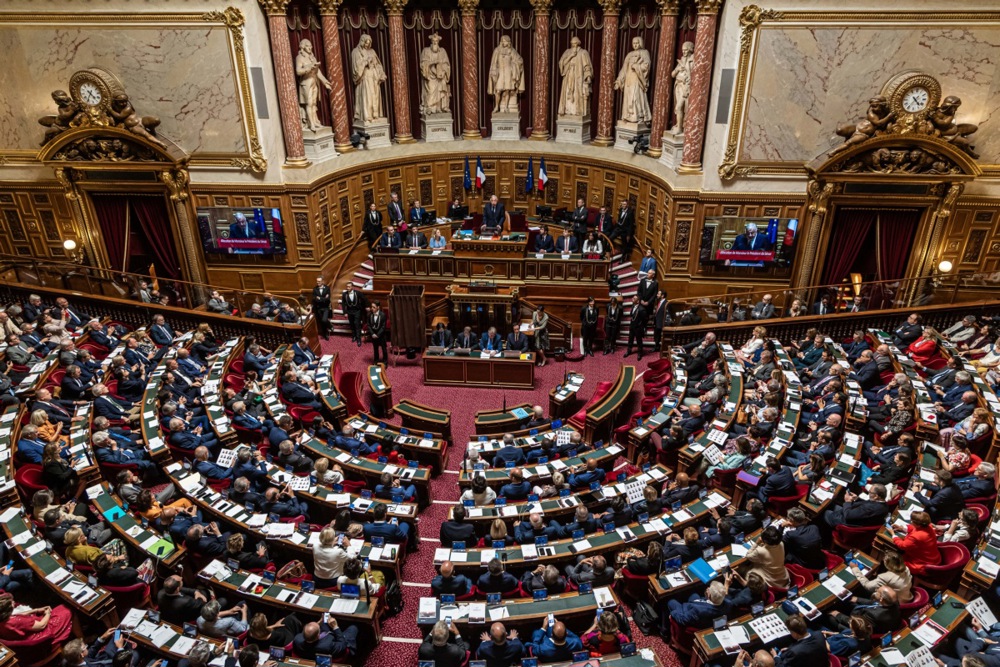US academics are crossing the Atlantic to continue their progressive gender studies, statistics suggest.
In the wake of US President Donald Trump’s clampdown on gender studies and so-called diversity, American academics are flooding the University of Marseille with applications after a “Safe Space for Science” programme was created to offer “asylum” to US researchers for three years.
Of the 298 scientists from the US who applied to the University of Marseille after Trump’s administration clamped down on “wokery”, most were specialised in gender and history.
In just a few months, almost 300 academics showed interest in the offer, of whom 242 were deemed eligible. Of those, 135, were US citizens.
“These are the ones who are really hindered in their role, in their research, in their art, in their science and in their academic freedom,” Éric Berton, president of the university, told Franceinfo on April 16.
The candidates were mostly experienced individuals who worked in the humanities and social sciences sectors.
“They are mainly those who are interested in gender and history. Often, they are accused of rewriting history,” Berton said.
He added that there were also colleagues from the the biological sciences and doctors, especially those who worked in epidemiology, vaccines and oncology.
Berton said they would receive a “very decent French salary” but added that they were also motivated “by academic freedom and the fact that they are welcomed in a university of high international level, in an environment where they are desired, where they will be able to express themselves”.
Of the 298 applications, though, only 20 would be able to work at the University of Aix-Marseille from June, after a selection process that was set to begin in the next few days.
The university will take €15 million from its international research envelope to finance the operation.
“It is not €15 million that we are taking away from French researchers,” Berton stressed.
The Freie Universität Berlin has decided a travelling exhibition on anti-Jewish pogroms cannot be exhibited in the university building, fearing an “emotional reaction” from students. https://t.co/TEXJkgzJe6
— Brussels Signal (@brusselssignal) December 12, 2024
Since his return to the White House in January 2025, Trump has made changes affecting the scientific community in his country.
These have included cuts to federal research funding, withdrawal from the World Health Organisation (WHO) and efforts to dismiss federal workers focused on health and climate research.
With his latest round of funding cuts, the President appeared to be doubling down on that, ensuring taxpayers’ money fuelled research that directly benefited US citizens rather than subsidising what he saw “as ideological activism” disguised as science.
Diversity, equity, and inclusion policies in the US have been a target of Trump’s administration, which has made it clear that taxpayer-funded science should prioritise results over ideology.
During his electoral campaign, the President vowed to purge “wokeness” from education and put an end “to left-wing indoctrination in academia”.
The US administration has also been a lot less tolerant of what it labelled Anti-Semitism and progressive-inspired racial discrimination at universities.
Both subjects have been recurring problems in a lot of US universities, with the former president of Harvard even struggling to say that calling for the genocide of Jews violated Harvard’s rules on bullying and harassment. That was despite it having cultivated a culture of hypersensitivity towards so-called “micro-aggressions”.
Earlier, Yale University was found to be in breach of civil rights law in its undergraduate admissions process, discriminating against whites and Asians.
Now, more than 50 US universities faced federal investigations for similar racial discrimination.





